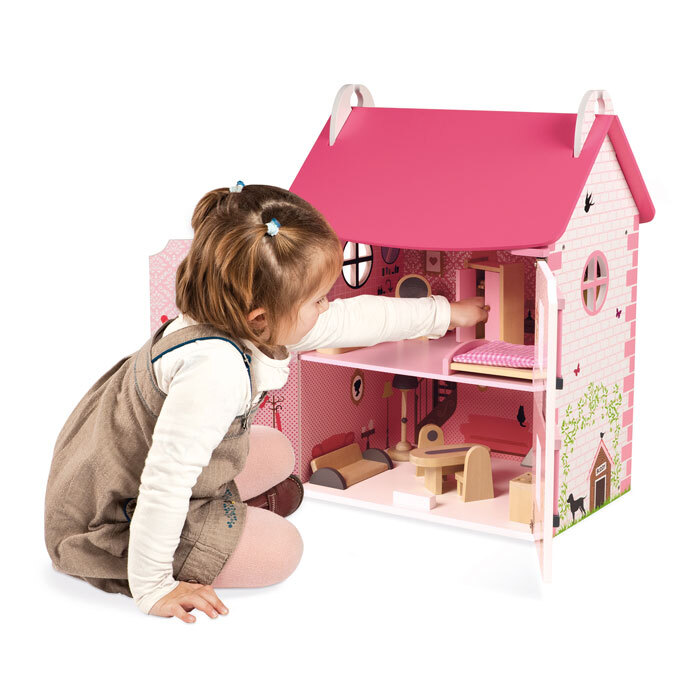Benefits Of Letting Kids Play With Dollhouses
Author: Debbie Pollard Date Posted:15 December 2022

Dollhouses are popular toys among young children,. These gorgeous miniature homes, complete with tiny dolls, furniture, and decorative trinkets, are much fun for kids and maybe even adults.
Dollhouses are excellent tools to help children explore their creativity and develop fine motor skills. Aside from being entertaining, playing with dollhouses helps young children develop. While they may seem like simple playthings, dollhouses offer a variety of benefits that can help your child learn and grow in ways you may not have expected.
Let's look at some of the reasons why dollhouses are great for kids.
They develop imagination and encourage creativity.
Doll houses encourage children to engage in imaginative play, which has significant educational benefits for their intellectual and social development. Not only do they get to create an entire world inside the house, but they also get to decide how people interact with each other within this world.
For example, Susan Scheftel's article for Psychology Today reflects how dollhouses can help a child's emotional skills. This type of play allows children to create imaginary narratives similar to real-life events.
They hone problem-solving skills.
Dollhouse play can also help children strengthen their problem-solving skills because they must use logic and reasoning to solve issues in their miniature world. They are free to experiment with different scenarios and outcomes, which teaches them valuable lessons about cause-and-effect relationships.
They improve social skills.
Dollhouse play involves role-playing and dialogue between characters represented by the various people who live in the dollhouse. Dollhouses encourage imaginative play, which helps children develop their social skills and make sense of the world. Children act out social situations, imagine different perspectives and personalities, and practice social conflicts. All children need to develop their social skills because it provides a foundation for connecting with others.
They improve fine motor skills.
Playing with dollhouses can also improve your child's fine motor skills. Manipulating small furniture pieces and accessories requires precise movements, which help them practice dexterity and hand-eye coordination. Additionally, assembling pieces helps them understand spatial relationships, which are essential for many forms of construction or engineering later in life.
They improve vocabulary and communication skills.
Dollhouse play helps children learn how to socialize while also increasing their vocabulary. They discover how to narrate events in the dollhouse and even describe specific rooms and objects, such as how one area looks or how big this room is. Playing with dollhouses can also help a child become more comfortable speaking out loud, especially when playing with adults or peers.
They help develop emotional intelligence (EQ).
Children can weave ordinary elements of everyday life into a fantasy narrative that they can control through dollhouse play. Even if the family in the doll's house consists of mice or bunnies, children can explore characters and personalities through their play figures and the dramas that play out between them. Acting out stories and scenes from their daily lives helps children understand their families and the world around them.
How To Choose A Dollhouse For Your Kids
There are numerous factors to consider when selecting a dollhouse, such as the best size, the type of budget you have in mind, and the material of the dollhouse. Whichever doll's house you choose, we recommend that the figures be able to move from one space to another. Even a simple one-room dollhouse can work if it has a front door through which dolls can pass. Choose from our dollhouse collection to see which one your child would love.





